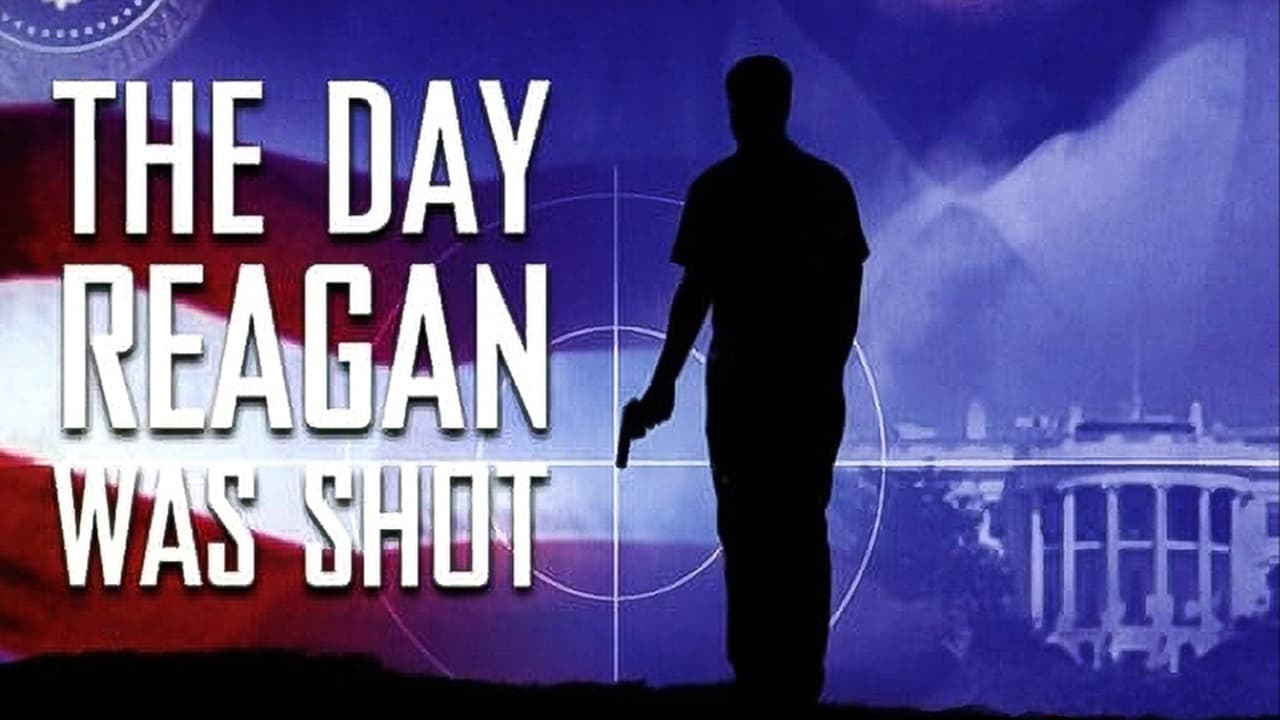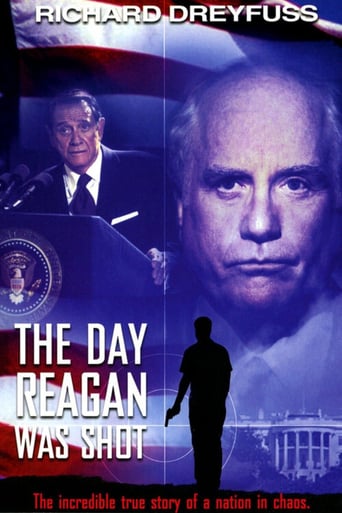Perry Kate
Very very predictable, including the post credit scene !!!
Joanna Mccarty
Amazing worth wacthing. So good. Biased but well made with many good points.
Phillipa
Strong acting helps the film overcome an uncertain premise and create characters that hold our attention absolutely.
Isbel
A terrific literary drama and character piece that shows how the process of creating art can be seen differently by those doing it and those looking at it from the outside.
joe-pearce-1
This one really has me confused. Almost every IMDb comment here - likes and dislikes - is based on people's political beliefs, or on their arguments about what is historically accurate, or how they perceive the Hollywood Left in general and Oliver Stone in particular. But, folks, this is a movie made for TV and all reviews should be based on its relevance or lack of same as a work of art. A TV movie a work of art? Okay, maybe not, but all films, plays, musicals, operas, etc. aspire to at least encompass the artistic impulse, and veracity is hardly even a consideration in such things. Only excellence is. We now know that Richard III wasn't the demented murderer Shakespeare painted him as, and that Boris Godunov did not murder his way to the Russian throne. But those facts in no way diminish Shakespeare's RICHARD III as one of the greatest plays ever written, or Mussorgsky's BORIS GODUNOV as the greatest of all Russian operas. So, let's let verisimilitude lie dormant for a minute and simply look at this TV movie as a minor work of art.I'd never heard of this film before, and watching it 16 years after it was made, I found myself absolutely mesmerized from beginning to end by the story it told. Was that story totally true? Probably not. Were the characters as portrayed absolutely true to the people involved? Probably not. Was what we were given in place of absolute truth and correct character delineation worth seeing? For me, it was ten stars worth seeing, so that obviates the need for further discussion, at least on my part. I thought every performance in the film was something of a standout, but especially those by Richard Dreyfuss as Al Haig and Holland Taylor (who, despite enjoying what I now find to be considerable fame as, in particular, a TV actress, I did not know) as Nancy Reagan, but also by Colm Feore as Caspar Weinberger. In fact, this is the best thing I have ever seen from Dreyfuss, who has wonderful memories for me in JAWS and MR. HOLLAND'S OPUS. The pure suspense of what has happened, is happening, and may yet happen is fantastic when you consider that everyone seeing this film already knows exactly what did or didn't happen. That is the mark of a good scriptwriter and a good director. Oliver Stone apparently produced this film, so that the Conservatives are jumping all over it as some kind of Leftist propaganda. I am a Conservative, and I got no such inkling from anything I saw here. It seemed to me that, for all practical purposes, Haig and Nancy Reagan were the two most admirable people to be seen in it. Mrs. Reagan's all-consuming love for "Ronnie" may be laughable to some, but not usually to people who grew up in Middle American Happy Households of the Reagans' life period. Haig, often portrayed (here and elsewhere) as a loose cannon, seems to me to be the only person in the story who has complete clarity of thought throughout (except for that one major "I am in charge" statement to the Press, a simple verbal faux pas to anyone who is not a conspiracy theorist). What surprises me most, and what not one reviewer here addresses, is that the film ultimately seems to come down on his side, when, as he leaves the Crisis Room for the last time and is asked what he will say to the Press the next day, he faces everyone down and quietly details every single thing he has found wrong in the way the crisis was responded to - from losing the President's nuclear access code card, to non-working telephones in a time of national emergency, to the near war engendered with Russia due to Weinberger's blunder, etc., etc. - and then says that, like a good soldier, he will fall on his sword before he makes these things public. In the end, and given the 'facts' as presented in this dramatization, any viewer taking the story at face value would have to agree that, if there was anything that had to be saved for the Nation during those first 24 hours after the assassination attempt, it was only Haig's overwhelming confidence and action that could be counted on to do so.Truth in reporting: Either shortly before or shortly after the Reagan Administration came into power, I met for dinner and a show with an old army buddy of mine from Tennessee and his family, this at the New York Hilton. As we entered the elevator to come down to ground level, who should be in that same elevator, all by himself, but General Alexander Haig, whom we took the liberty of speaking to for perhaps one minute. He was extremely friendly, but I cannot recall ever having been in the presence of anyone who exuded more charisma than General Haig, and that was almost 40 years ago, so however Richard Dreyfuss may have played him in this film, he hardly overdid that aspect of his personality.
Rob
I saw this film on the History Channel today (in 2006). First of all, I realize that this is not a documentary -- that it is a drama. But, one might hope that at least the critical "facts" that the story turns on might be based on actual events. Reagan was shot and the other characters were real people. The movie got that right. From there on, reliance on facts rapidly decays. I had never heard of this movie before seeing it. Having been a TV reporter at the time of these events, I was stunned that I had never heard anything about the bizarre behavior of Secretary Haig as portrayed by Richard Dreyfuss. The whole nation had heard the "I am in control...", etc., but Dreufuss' Haig is bullying a cowered cabinet and totally out of control personally. Having watched the film, I began researching the subject on the Internet and quickly found actual audio tapes and transcripts of most of the Situation Room conversations that this film pretends to reenact. Incredibly, many the the principal "facts" of the film meant to show a White House, Secret Service etc. in total chaos -- and the nation's leadership behaving irrationally and driving the world near the brink of nuclear war -- are demonstrably incorrect. They didn't happen! There is internal conflict, to be sure. Haig makes missteps, his press room performance is historically regrettable and he is "difficult". But there is nothing approaching the scenes depicted in the film. There are too many gross errors to list, but any fair comparison of the recorded and written record and the fantasy of this film begs the question as to what the producers were really trying to accomplish. Enlighten? Inform? Entertain? I believe they failed on all three fronts. It is difficult to ascribe motives to others, but one must seriously question what was behind such shameless invention. And, as for my beloved History Channel's "Reel to Real" follow-on documentary, there was almost no mention of the issues that were the central focus of the film -- namely the events within the Administration on the day of the shooting. So, the viewer was left to research those without much -- if any -- help from the network.
BigTimeMovieFan
I'll get to the movie in a minute. First, someone wanted "proof" about Clinton's comments at Georgetown, where he claimed that the USA "deserved" the 9-11 attacks. Well, here's what Clinton said:"In the first Crusade, when the Christian soldiers took Jerusalem, they first burned a synagogue with 300 Jews in it and proceeded to kill every woman and child who was a Muslim on the Temple Mount. I can tell you that story is still being told today in the Middle East and we are still paying for it."WE'RE still paying for it? Whaddya mean "we", paleface? The Marines didn't storm the Temple Mount. But in truth, Clinton never really came out and flatly said that we "deserved" 9-11. Like all his statements during his presidency, he IMPLIED that we deserved 9-11. Just point out "fact" A, B, C, and maybe D, and let the listener deduce that they must add up to conclusion X. When in truth, most of Clinton's "Facts" added up to guacamole.But that's beside the point. We're here to talk movies, not politics. Unfortunately, when Oliver "Captain Conspiracy" Stone does a movie, you can't escape his warped politics. It was only a matter of time before he focused his paranoia and bitterness on the Reagan Era, and what better time than when Stone's dreams almost came true, on the day Reagan nearly bought the farm. Unable to find any nefarious plots or schemes in Hinckley's assassination attempt, he invents one with Al Haig. From a simple misunderstanding of the chain of Constitutional authority, Haig is transformed from a public servant who really should have brushed up on his remedial civics into a raving megalomaniac. You almost expect Haig to rub his hands together like Montgomery Burns and tell Cap Weinberger to "Release the Hounds." Stone even recruits the smarmiest person in Hollywood to play our former Secretary of State, Richard Dreyfuss. A guy you love to hate on sight.Overall, the movie is OK. Average, hovering on below average. Don't bother renting or buying. Try to catch it on cable. 4 out of 10.
hcozine
Although the makers of the film used the usual disclaimer of part of the film being "fictionalized", it was apparent they were passing it off as factual. I was surprised and somewhat angered at the sloppiness in one key scene, where Haig is upbraided for misquoting the constitution. In the scene they give Haig a copy of the 25th amendment. However, nowhere in the amendment is reference made to the order of succession beyond the vice president. In fact, the Presidential Succession Act, passed in 1947, and not a part of the constitution, defines the order of succession. This is easily researched and shows a lack of apreciation of history on the part of the film makers. Come on, gentlemen, let's be more careful.


